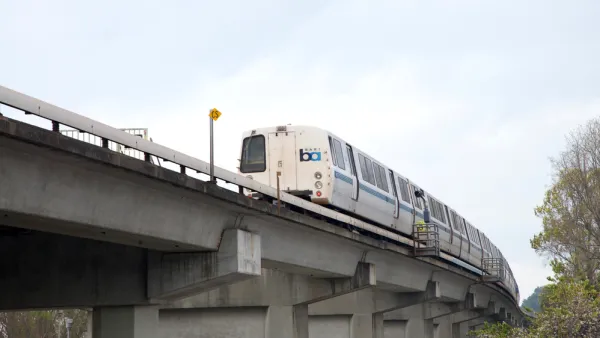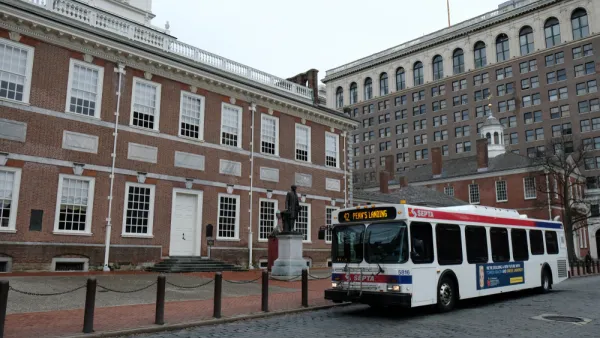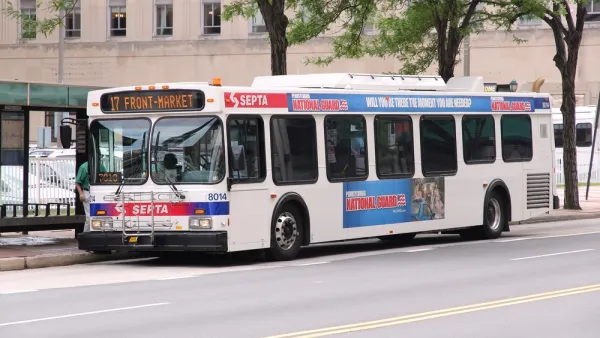Transit ridership is spiking across the country as gas prices go up. Is this a tipping point for America's car culture?
"Across the nation, the price of gasoline is sending more and more Americans to public transit.
This ridership surge points up three things: (1) These millions of new riders can do it. Most of them always could have. They just didn't. (2): We're not at the end of car culture yet . . . that's a few generations off . . . but (3) it's clear, in not-quite-hindsight, that the U.S. car culture does not work.
Car culture got us where we wanted when we wanted - for five generations. Much has been spectacular, beyond what could have been dreamed 100 years ago.
How, then, can I say that car culture doesn't work? Because the cost to individual and communal life, and to the environment, has been too high. And the bill is just now coming due.
It's not evil, just heedless. People take the opportunities they're given. They have the right. The car symbolizes freedom, rights of passage, career, sexuality. We've created the national road system, bought hundreds of millions of cars, based hundreds of millions of lives on the assumption that Hey, we can just drive.
We've basically laid the environment to waste, millions of acres never to return, all because there was no plan B. Roads are good things - but where you build a road, you outrage an environment, and no one ever rectifies it. The sad sprawl of the 1980s and 1990s, when people let towns metastasize into hastily planned and built exurban strips - that worked well, didn't it?
Many are now finding there are other ways. As oil gets scarcer and pricier, people may start to work closer to home, based on resources. They're starting to, it seems. That may benefit cities, with people increasingly opting for "elegant density" and closeness to work and amenities. We should have been doing this all along. We just weren't paying attention.
So, no, we haven't reached the tipping point - we've reached a pocketbook point. When things really tip, we'll discover - gasp - we don't have enough trains and buses for those who need them."
FULL STORY: The American car culture is running out of gas

Analysis: Cybertruck Fatality Rate Far Exceeds That of Ford Pinto
The Tesla Cybertruck was recalled seven times last year.

National Parks Layoffs Will Cause Communities to Lose Billions
Thousands of essential park workers were laid off this week, just before the busy spring break season.

Retro-silient?: America’s First “Eco-burb,” The Woodlands Turns 50
A master-planned community north of Houston offers lessons on green infrastructure and resilient design, but falls short of its founder’s lofty affordability and walkability goals.

Test News Post 1
This is a summary

Analysis: Cybertruck Fatality Rate Far Exceeds That of Ford Pinto
The Tesla Cybertruck was recalled seven times last year.

Test News Headline 46
Test for the image on the front page.
Urban Design for Planners 1: Software Tools
This six-course series explores essential urban design concepts using open source software and equips planners with the tools they need to participate fully in the urban design process.
Planning for Universal Design
Learn the tools for implementing Universal Design in planning regulations.
EMC Planning Group, Inc.
Planetizen
Planetizen
Mpact (formerly Rail~Volution)
Great Falls Development Authority, Inc.
HUDs Office of Policy Development and Research
NYU Wagner Graduate School of Public Service




























